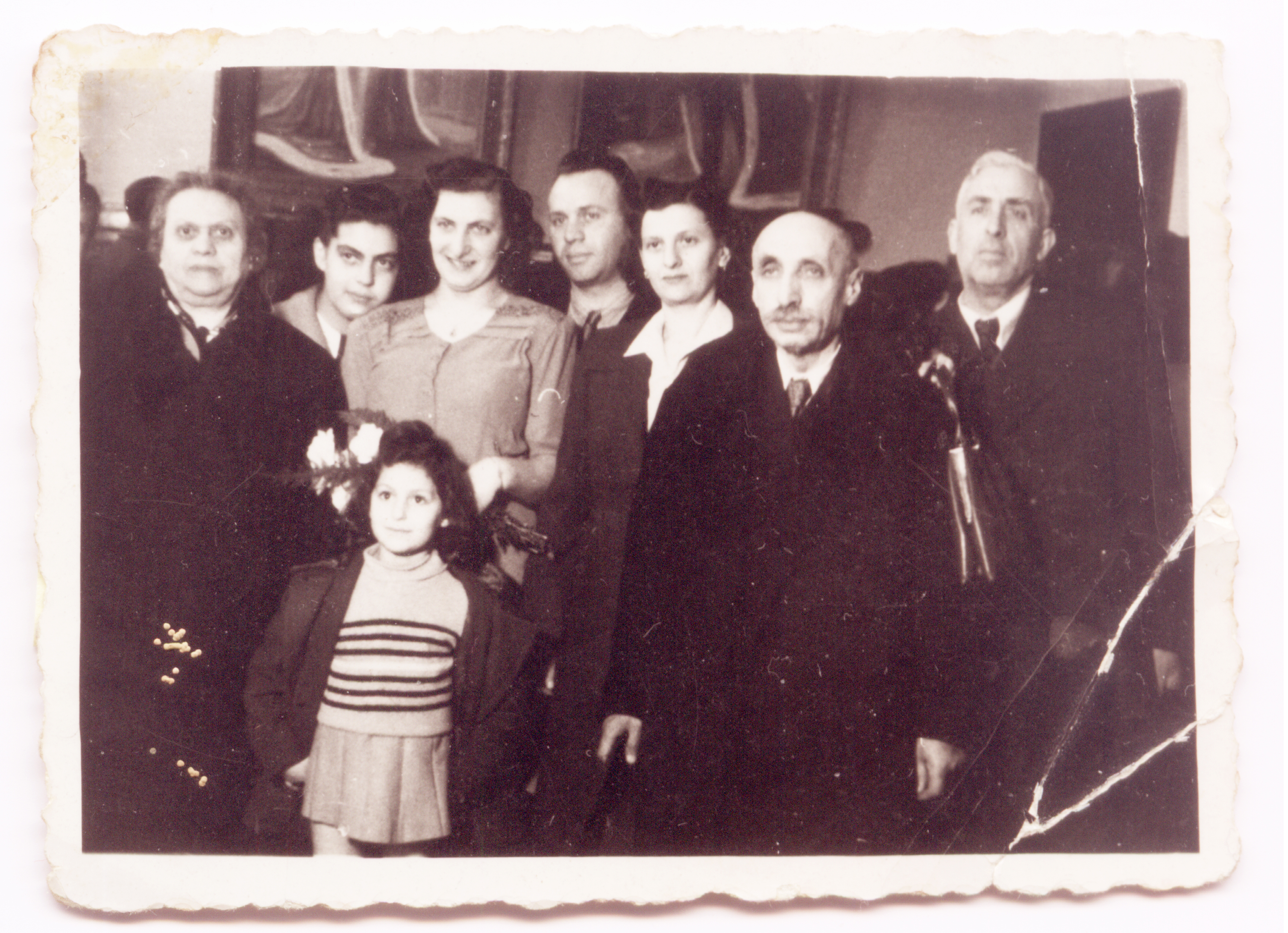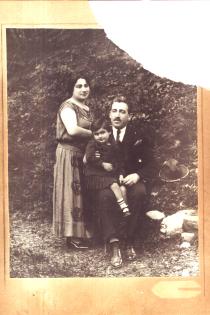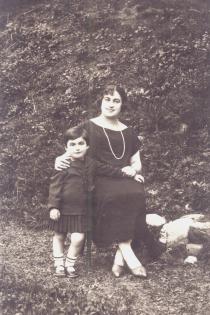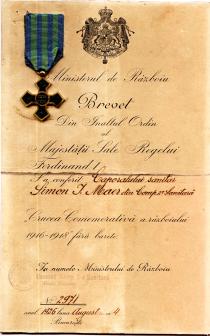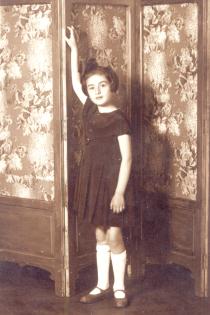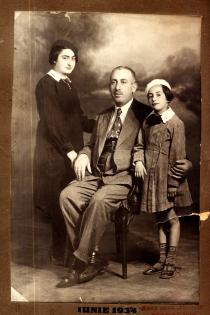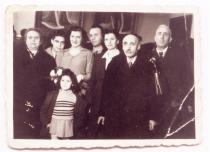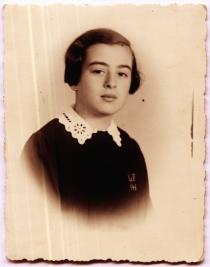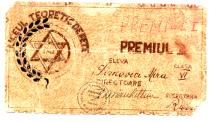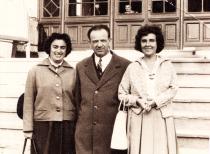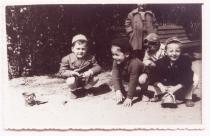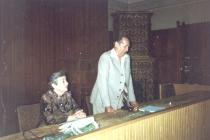This is my father with some Jews from Ramnicu Valcea. This is my father [the first from right in the back line] with another tradesman from Ramnicu Valcea, Lazar Taubman [in the front line]. From here on, it's just his family. My father was alone because he happened to be at their place that day and they had this picture taken. This was before 1940 - around 1937 or 1938.
My father worked as a shop boy for Lazar Taubman’s father-in-law, Marcu Adler. Then they both became tradesmen. Taubman had two daughters. The elder didn't even go to high school; she stayed at home with her mother and helped her around the house. They got her married at 17-18. The same thing with the younger. She went to a 'housekeeping school'; this is how it was called - not apprentices' school, not vocational school. It was a 'housekeeping school' where they taught girls to sew and cook.
My father's education consisted of two years in elementary school. But he was very clever and had an extraordinary business sense. He was born in Pitesti. His mother died when he was 9. Since the step-mother had no affection for him, his father, a tinsmith, sent him to Ramnicu Valcea, to work in the store of Marcu Adler. What kind of work can a 9-year-old do in a store? He became a sort of servant in the house. But he stayed with this tradesman until he grew up.
After he got married, he fought in the Balkan War [on the Romanian side], in 1913. He went back to Ramnicu Valcea after the war. The tradesman for whom he had worked, who hadn't paid him a dime, but had lodged and fed him, gave him a certain sum - I couldn't tell how much - which he used to open his own store. He became one of the richest tradesmen in Ramnicu Valcea, between 1920 and 1940. He had an interesting sign, 'The Country Hora'. [Ed. note: Hora is a Romanian folk dance with a slow rhythm in which the dancers hold hands to form a closed circle.] It was what we call today a general store: clothes, footwear, linen, notions. People would come from the countryside - people in Valcea County were very hard-working and very wealthy -, buy everything they needed from my father's, and fill their carts. They only paid later, in fall. They never paid for the merchandise on the spot. My father would put them on the credit list. After they had harvested their crops or sold their animals, they came back to pay their debt. This is how things went year after year. What I mean is that my father was a great businessman. It's true, he had to take some chances, and he might have had some disappointments too, but I never heard him complain about unpaid debts. Even the townspeople used this system. The clerks bought on credit and paid when they got their salary. Clerks and teachers have always been poorly paid - even before the war [World War II]. We never owned any land in the countryside. All we had was our house. My father wasn't into farming. He didn't want to buy another house and rent it either. He was only into trade.
